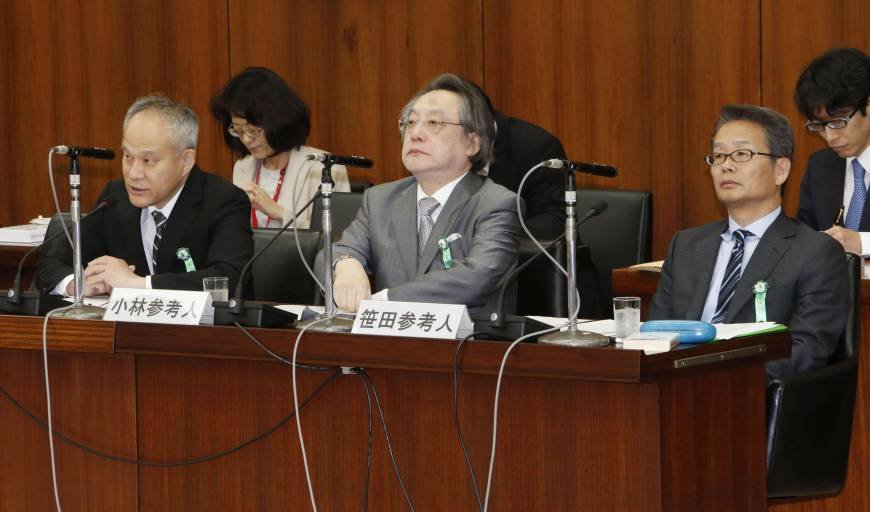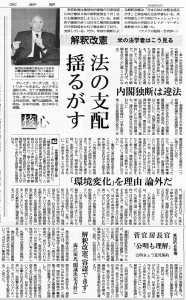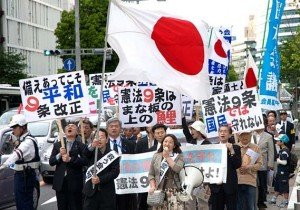(Published in The Japan Times, Jun. 13, 2015).
Three of Japan’s preeminent constitutional law scholars testified on June 4 that the government’s recently tabled national security bills were unconstitutional. The proposed legislation is intended to implement the Cabinet resolution that purports to “reinterpret” the war-renouncing provision of the Constitution. The legal scholars’ testimony was greeted with apparent surprise in the media, as though it had not occurred to anyone until that moment that the draft bills might be unconstitutional.
The media reporting on the so-called reinterpretation has reflected a profound misunderstanding of the constitutional effect of the Cabinet resolution ever since it was issued last summer. The press has typically stated that the meaning of Article 9 had been “changed” or “revised” by the Cabinet resolution. That is simply wrong as a matter of law. It is important that the media understand that the Constitution was not amended or changed in any way by the Cabinet resolution, and that laws must continue to be judged against long established interpretations of Article 9. Otherwise, misleading and mistaken reporting on the issue could contribute to making an illegitimate attempt at reinterpretation a de facto amendment.



